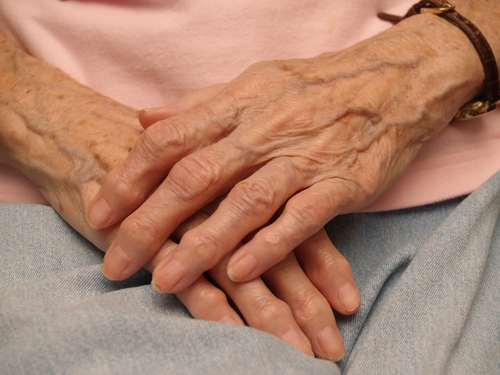According to the Centers for Disease Control, an estimated
52.5 million Americans have been diagnosed with some form of arthritis, making it one of the most common afflictions. While the term arthritis itself refers to inflammation of the joints, it is also used to denote an entire class of rheumatoid conditions affecting the joints and connective tissues. Symptoms include pain and stiffness around the affected areas. Arthritis can vary widely in terms of location and severity.
“There is no one answer for what causes arthritis.”
How does arthritis develop?
There is no one answer for what causes arthritis. The condition can crop up suddenly at any time, without the presence of an obvious cause, even in people under the age of 16. Currently, there are nearly 300,000 people in the United States dealing with Juvenile Arthritis, an umbrella term used to denote any one of a number of rheumatoid conditions.
If arthritis is related to gout, elevated levels of uric acid could be the culprit. Similarly, there are a number of infections that present with arthritis as a side effect, per the CDC.
What risk factors are there?
While there is no single factor that causes all arthritis, there are a number of risk factors, both modifiable and non-modifiable, that can impact the likelihood that it develops. It is important to note that even in the presence of multiple risk factors, chance still plays a large role in whether a person will get arthritis.
Non-modifiable:
- Family history. Some forms of the disease are more likely to be passed down genetically. These include rheumatoid arthritis, systemic lupus erythematosus and ankylosing spondylitis.
- Age. People are more likely to develop arthritis as they get older.
- Gender. While some forms of arthritis are more common in men, such as gout, most affect women more frequently. For this reason, 60 percent of all people with the condition are female.
Modifiable:
- Occupation. Strenuous occupations, especially those that require excessive knee bending or squatting, are correlated with the development of arthritis.
- Infection. Certain microbial agents can enter joints and increase the likelihood of arthritis developing in them.
- Injury. If a joint is damaged, it is more susceptible to developing arthritis down the line.
- Body type. People who are overweight or obese are more likely to develop arthritis. In addition, not only does excess weight impact the onset of the condition, it can also cause its progression and increase the pain related to it as well.
- Smoking. Arthritis Research UK noted: “We do know that rheumatoid arthritis is more common and can be more severe in people who smoke. For some people, stopping smoking might reduce the risk of developing arthritis in the future. If you’d like to stop smoking talk to your doctor, who can give you advice and information to help you quit.”
Can lifestyle affect arthritis pain?
While no food has been linked to causing arthritis, there are several that can worsen inflammation and cause pain, according to the Arthritis Foundation. These include sugary treats, such as pastries and sodas, saturated fats, found in cheese and red meats, and refined carbohydrates, such as those in white rice and bread. People living with arthritis should consult their doctors to determine a diet that fits in with their lifestyles, and will not exacerbate discomfort related to the condition.
“Several foods can worsen inflammation and cause pain”
There are also measures that people can take to reduce pain related to arthritis. The CDC notes that moderate physical activity five or more times weekly can reduce stiffness, relieve discomfort and give those with joint conditions more energy. Moderate physical activity is defined as any task that causes a slight increase in heart rate or breathing, and includes such things as dancing, gardening and washing the car, provided that they are done at a sufficient pace. The CDC also provides more
detailed programs for those looking to use exercise as a way of mitigating arthritis-related pains.
People living with arthritis may find some relief when using
IMAK Compression Arthritis Gloves. Before pursuing any course of treatment, individuals should consult with a physician. A trained professional is best-equipped to determine which regimens are most appropriate for a particular person.

